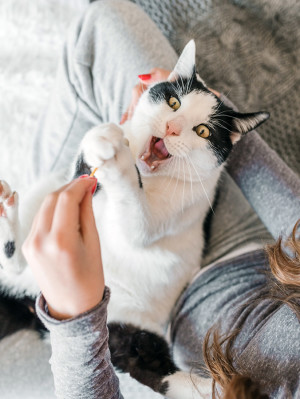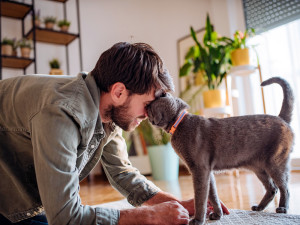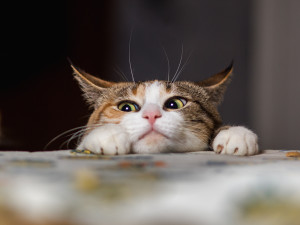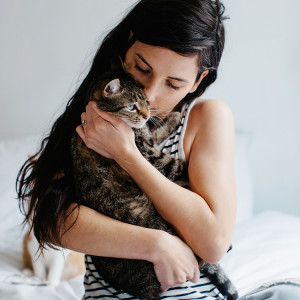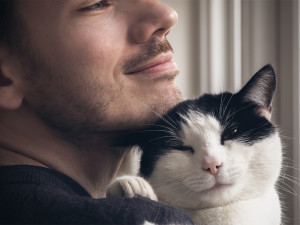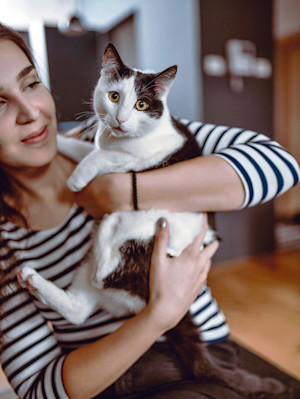Cats Associate Words With Images Faster Than Babies, New Study Finds
More proof that your cat is paying attention.
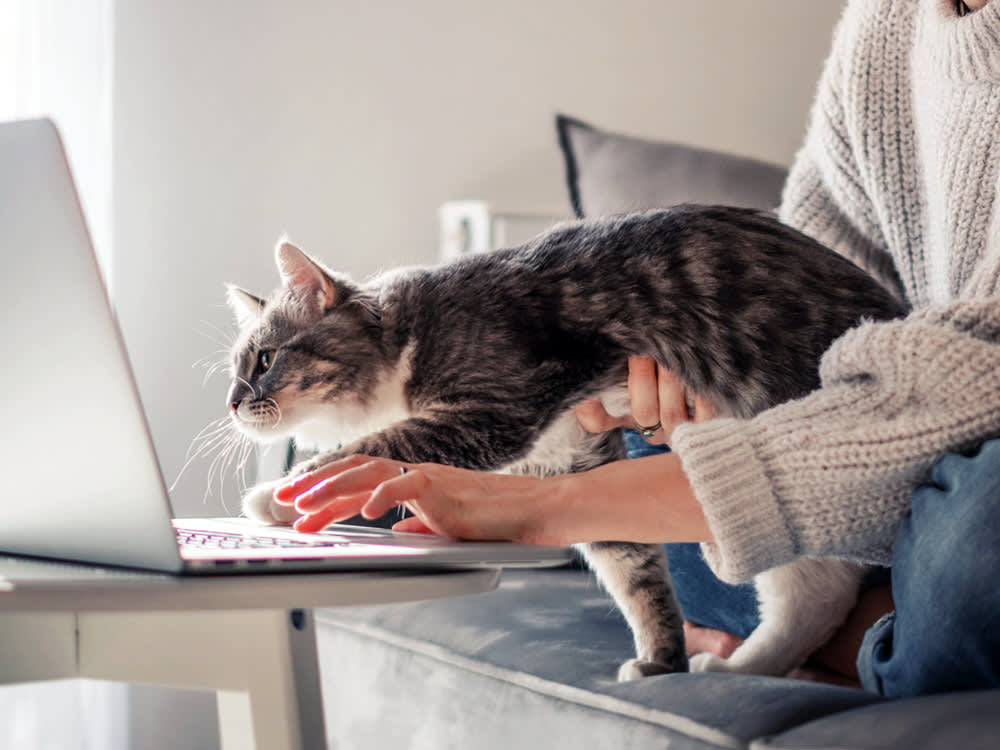
Share Article
In recent years, scientists have begun to prove something that might surprise the pet parents of aloof kitties: cats are pretty much word wizards (yes, even orange onesopens in a new tab). Previous studies have found that cats can recognize their pet parents’ voices, learn their own nameopens in a new tab and the names of other cats,opens in a new tab and match emotional facial expressions with sounds.opens in a new tab A new study found more evidence that cats are paying attention to language: Felines can quickly learn to associate human words with images.
The study
Researchers tested 31 cats using a word-object association test previously used on 8-14 month old human infants. The cats were all sourced from cat cafes or households. Researchers showed the cats two images: a “sun” image and a “pegasus” image. One of the pictures was red, and the other was blue, allowing cats to discern the colors.opens in a new tab The photos were animated to shrink and expand.

Get (totally free) deals for food, treats, accessories, tech, and way more pet parenting must-haves.
opens in a new tabThe pet parents of the cats each recorded themselves speaking the words “parumo” and “keraru” (two nonsense words) over and over again with different intonations.
Cats were then put in front of laptop computers. The cats were presented with one of the nonsense words paired with one of the images (for example: “parumo” with the sun image), followed by the other word and image pair (“keraru” and the pegasus image).
The cats were then given a short break. After the break, they were presented with the animations again — but this time, the words they heard were switched. After the switch, cats stared at the monitor longer, and some of the cats’ pupils dilated.
Their reactions suggest that the cats were focusing more during the switched trial — meaning they were trying to understand the new situation. “These results indicate that cats detected the switching of the combination of pictures and sounds by forming word-picture associations,” wrote Saho Takagi, the study’s lead author.
“It is noteworthy that cats made the picture-word association after only brief exposure,” Tagaki added. In fact, the cats made the associations more quickly than human infants did in previous experiments. This means that our cat might be catching on to more of those lengthy human-feline conversations than you think. They may not act like they’re paying attention, but don’t underestimate your kitties: they’re better listeners than they let on.

Sio Hornbuckle
Sio Hornbuckle is a writer living in New York City with their cat, Toni Collette.
Related articles
![a cat making an excited face at a person's hand]() opens in a new tab
opens in a new tabYour Cat Can Make Nearly 300 Unique Facial Expressions, Study Finds
They’re not so mysterious after all.
![Man cuddling his gray cat.]() opens in a new tab
opens in a new tabDoes Your Cat Think You’re Their Mom?
You love them like a child, but is the feeling mutual?
![Cat grabbing onto ledge of table and looking to the left]() opens in a new tab
opens in a new tabWhy Does My Cat Follow Me Everywhere?
Yes, they are right behind you.
![dark-haired woman hugging cat that has imprinted on her]() opens in a new tab
opens in a new tab10 Signs Your Cat Has Imprinted on You
Feeling like you have a little shadow these days? Here’s why that’s happening.
![cat snuggling man]() opens in a new tab
opens in a new tabWhat’s Your Cat’s Love Language?
Five surprising ways cats show affection (and how you can show it back), according to a cat behaviorist.
![Woman holding her scared cat in her arms.]() opens in a new tab
opens in a new tabAre There Certain Sounds That Cats Hate?
The internet says kitties despise “s” sounds, but it’s a little more complex than that.

